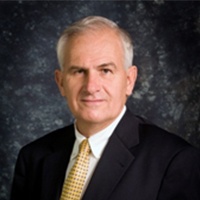Rowlesburg Felony Lawyer, West Virginia
Not enough matches for Rowlesburg Felony lawyer.
Below are all Rowlesburg Criminal lawyers.
Sean Thomas Logue
✓ VERIFIEDCriminal, DUI-DWI, Traffic, Felony
Serving Clients in the Greater Pittsburgh Area and West Virginia
Sean Logue is a diligent attorney who excels at representing people who have been charged with criminal and traffic offenses in Pennsylvania. He const... (more)
William C. Brewer
✓ VERIFIEDDivorce & Family Law, Medical Malpractice, Litigation, Criminal, Accident & Injury
Some Trial Lawyers Say They Have Experience. We Actually Do.
Legal challenges require top-level experience and skill. That’s why individuals and businesses in West Virginia (WV) turn to attorney William C. Bre... (more)
Wesley W. Metheney
Mass Torts, Chemical & Cosmetics, Criminal, Bed Bug, Mesothelioma
Status: In Good Standing
J. Michael Benninger
Criminal, Federal Trial Practice, Mental Health, Legal Malpractice
Status: In Good Standing
Trena Williams
DUI-DWI, Domestic Violence & Neglect, Mediation, Social Security -- Disability
Status: In Good Standing
FREE CONSULTATION
CONTACTGeorge F. Fordham
Oil & Gas, Employment, DUI-DWI, Contract
Status: In Good Standing Licensed: 46 Years
Kevin T. Tipton
Accident & Injury, Criminal, Divorce & Family Law, Lawsuit & Dispute
Status: In Good Standing Licensed: 24 Years
J. Brandon Shumaker
Criminal, Accident & Injury, Workers' Compensation, Medical Malpractice
Status: In Good Standing Licensed: 14 Years
Andrew Neil Frye
Juvenile Law, Employment, Divorce, Criminal
Status: In Good Standing Licensed: 20 Years



